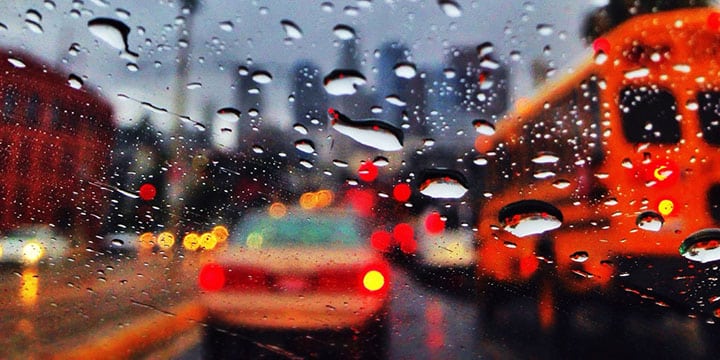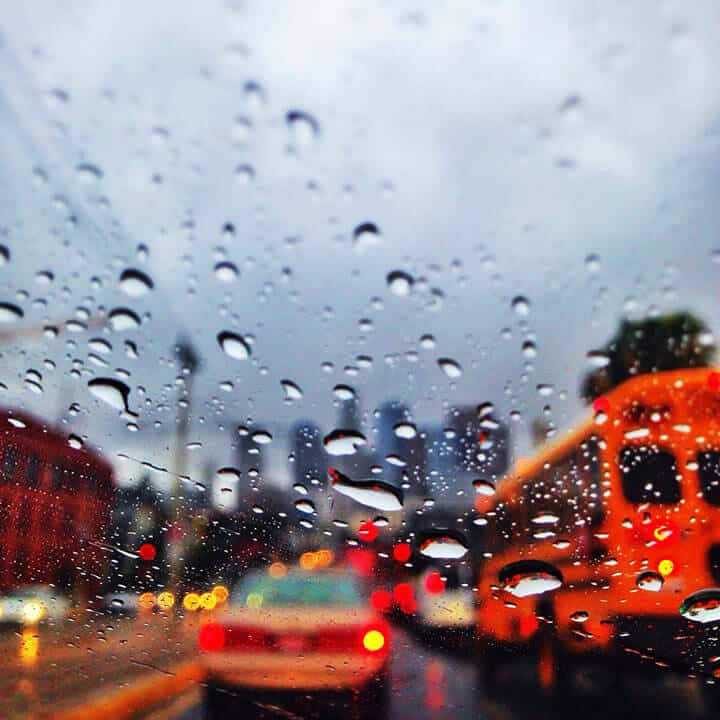When installing security systems, you need to consider the weather and learn how to prevent security camera condensation. That's the main topic of this article.

Don't worry if you have this problem, it usually affects security camera lenses, therefore obstructing and blurring images, but it's not hard to fix that.
Security camera condensation affects your safety
Condensation is one concern security cameras face because it affects the security and safety of the property and your family.
Since it is a natural occurrence, condensation cannot be avoided. However, it can be prevented and minimized. All it takes is proper maintenance and precautions.
The important thing is. You choose the right security camera and be aware of the proper techniques to resolve the problem with condensation.
What causes security camera condensation?
The Camera Is Not Sealed Properly
Improper or imperfect sealing is one reason why condensation happens in security cameras. Cheaper cameras, however, are not really water-resistant, contrary to what they claim and promote.
You might have this misconception that you will be able to save money when you get cheap equipment from unknown brands. However, this is not so.
You must avoid purchasing such equipment as oftentimes, they will fail and malfunction. Therefore, you will end up spending more money as you will have to replace them with another brand new equipment.
Why? Cheaper security cameras usually do not come with warranties. So better get ones with a warranty. They may be a little bit more expensive, but you will definitely be saving more in the long run.
Fluctuations in Daily Temperature
There are places where daily temperature fluctuations occur.
Aside from imperfect sealing, daily temperature fluctuations are also another reason why condensation forms.
To protect your security cameras, that is, if you are living in an area where this happens, you need to consider getting a specialty housing for your security camera.
Severe Weather
Another reason why condensation forms is because if the severe weather.
Severe weather conditions can cause a large amount of moisture to build up in a camera. Make it a habit to check your security cameras regularly, especially after a storm or other severe weather disturbances.
Make sure that they are functioning properly and check for signs of condensation build-up. One way to prevent or minimize this problem is to install specialty housing on your security camera.
Aside from specialty housing, it is also recommended that you purchase security cameras from manufacturers with a good reputation.
It is always important to maintain and check your system.
Although your security camera may be dependable and durable, it is still best that you check and maintain it regularly. Doing so will ensure the security and safety of the property it protects, and your family, too.
Indoor Cameras Used Outdoors
There are instances when security cameras intended for indoor use are installed outdoors. Well, there may be several reasons why such things happen.
First, budget-wise. Indoor cameras are cheaper than outdoor ones. Another reason is just plain and simple ignorance on the part of the property owner.
However, bear in mind though that indoor security cameras are not durably made. In other words, they are made as they should be used – indoors.
They may be cheaper as compared with outdoor security cameras, but they are not as durable. But do not get me wrong.
Indoor security cameras are durable and reliable if they are used indoors, as this is how they are designed. So, the “concept” of saving money by installing indoor cameras outdoors is definitely not a good idea.
You might end up spending more instead of saving more.
Resolving Condensation Issues
Weatherproof Housings/Mounts: One of the best solutions to resolve condensation issues on your security cameras is to install weatherproof housing and/or mounts together with your security cameras.
They are designed to be used outdoors and withstand harsher environments. Furthermore, they give extra protection for your outdoor security cameras by providing another layer of protection.
Wipe Off the Lens: Wiping off the lens of your security camera is the simplest and easiest way of addressing condensation issues. However, it might wear you out as you have to do it repeatedly, time and again.
That is, every time condensation forms. This method can be very time-consuming. However, it must be done as you need to remove accumulated condensation from your security camera lens to ensure that it functions properly.
Heaters and Blowers: Installing heaters and blowers is also a way to ensure that the temperature of your security camera is regulated internally.
A more constant temperature inside the unit decreases the risk of condensation.
There are models which require installation by professionals. However, there are also those which are built into weatherproof housings.
This makes them easier to be installed.
Anti-Fog Spray: This is used after wiping off accumulated condensation from your security camera lenses and covers.
Anti-fog spray must be applied to help minimize or prevent condensation from occurring later on. After wiping of accumulated condensation is the best time to apply anti-fogging spray as maintenance for the lenses.
Desiccants: Desiccants and Silica Gel may be kept in the unit. This will draw in accumulated moisture, therefore dehumidifying the area.
This is a cost-effective way of resolving condensation issues. However, you need to be patient as it needs to be replaced every so often. Neglecting to replace them when needed will make them useless as they will not be able to function properly.
Remove Dome Covers and Wipe-Off: Dome covers must be removed and wiped. This is to get rid of any moisture that has accumulated there, too.
Contact Customer Support for Further Assistance: If, after doing everything you know to do something about condensation on your own, and still to no avail, it would be best to call for help. You may contact customer support for assistance or any technician who are capable of dealing with such issues.
Acquiring equipment from reputable brands will be most helpful in situations like these. Why, you might ask. Because they come with professional support teams who can aid you when something goes wrong with your equipment.
How to Prevent Condensation on Outdoor Security Cameras
Preventing condensation from accumulating on the lenses of your security camera is easy if you know how. Here are some tips on how to do it.
Purchase Security Cameras from Reputable Brands
Top security camera brands are recommended. Whether you purchase online or from stores in your locality, it is always best to choose security cameras from reputable brands that have a commitment with quality control.
Other than that, the good reputation they enjoy means they have outstanding products and customer service which is essential for a security camera system.
They also have a support team made up of expert technicians who are always ready and available to aid you when need assistance. And their services are usually free.
Avoid opening the camera's housing
If you buy a camera with varifocal lens which allows you to change the focus and length (magnification) you must have a way to adjust the lens.
During the cameras installation the humidity can get into the housing if the installer opens the housing for lens adjustment and that can cause the condensation issue when the camera starts working.
The image below shows a camera that can have its lens adjusted externally, thus preventing condensation since it's not necessary to open the camera's housing.
These security cameras may be a little expensive when compared with cheaper ones. However, they come with warranty and smart solutions like that.
Other interesting solution to prevent condensation is to use security cameras with motorized lens that allows you to adjust the varifocal lens remotely without opening the camera's housing. You can find such a solution in professional cameras such as the Dahua 4MP Varifocal PoE IP Bullet Security Camera.
Use weatherproof security cameras
Before purchasing an outdoor security camera make sure it's weatherproof.
This is easily indicated by the camera's Ingress Protection (IP) that prevents dust and water from coming into the housing. You just need to look for cameras that have IP65, IP66 or IP67 (the higher the better).
You can also look for the waterproof or weatherproof indication in the specs of the camera your about to purchase just like this one from the following picture.
There are a lot of outdoor security cameras that are weatherproof.
Keep a Keen Eye on Humidity and Working Temperature of Your Security Camera
Checking the working temperature and humidity on your security camera is important before checking out. This is recommended in high latitude areas and cold regions.
Furthermore, you need to confirm if the security cameras are capable of working in both indoors and outdoors. Remember that qualified outdoor security cameras are able to sustain weather-proof ratings of IP65 or even higher.
Installation Spots Must be Chosen Carefully
Purchasing waterproof and weatherproof security cameras does not mean they can just be installed anywhere.
You still need to take the necessary precautions and care when choosing the right spot on where to install your outdoor security cameras.
Exposing outdoor security cameras to direct sunlight and other weather conditions without any shelter or proper coverings makes it an obvious candidate for the formation of condensation.
Therefore causing problems which may cause serious damage if not addressed right away, and properly.
Areas which are ideal for the installation of outdoor security cameras are:
- Front door
- Garage
- Back door
- Porch
- Off-street window
Wrapping Up
Security cameras are there to help us secure our property and keep the area, and our family safe, too. However, securing our properties does not mean simply putting up security cameras.
The use of security cameras requires proper knowledge and a sense of responsibility, too.
Just like any other equipment we acquire, CCTV cameras need to be cared for properly. There are a lot of things to be considered before installing one.
There is the kind of security camera, the brand, the features, and a lot more.
And with all these comes the responsibility of taking care of it and maintaining it properly. Doing so will ensure that it functions properly, thus assuring us that our properties and our family will be safe and secure.
Want to learn more ?
If you want to become a professional CCTV installer or designer, take a look at the material available in the blog. Just click the links below:
Please share this information with your friends...
